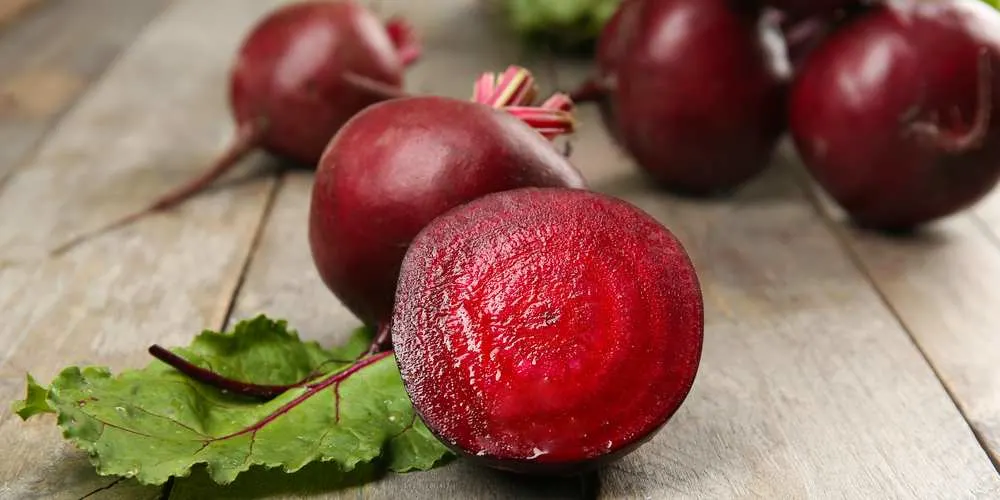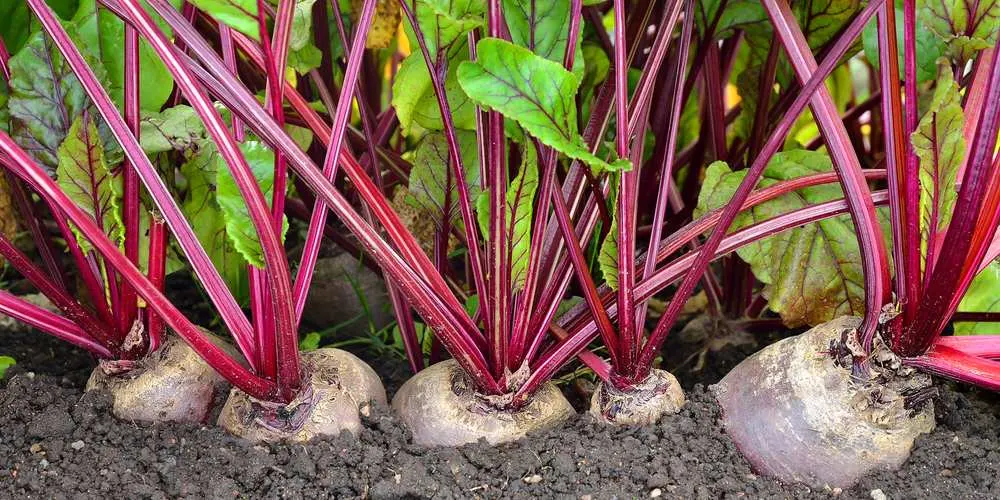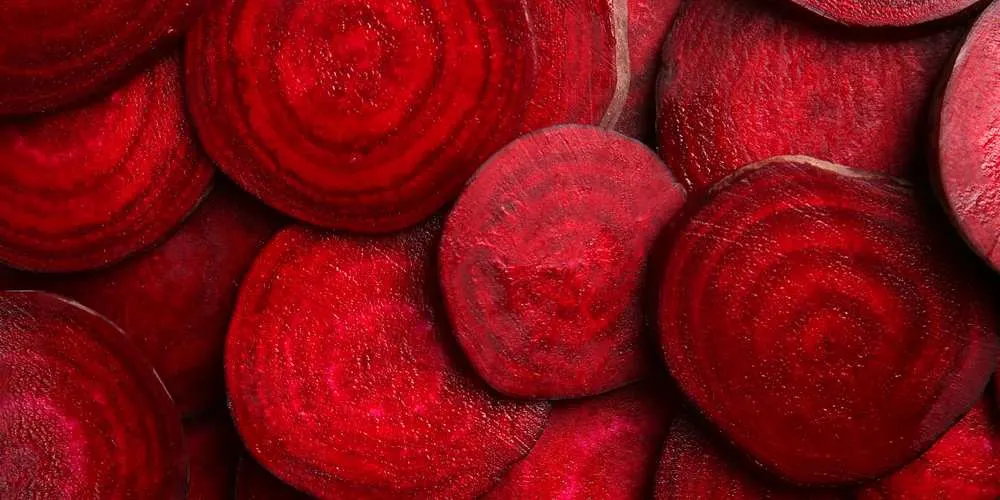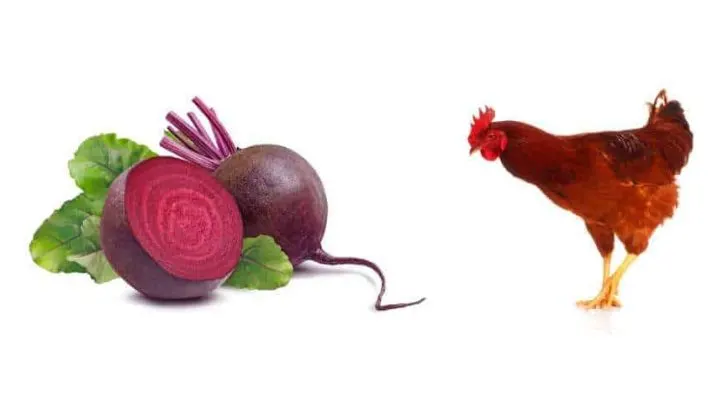Has it ever crossed your mind that it might be healthy to include some beet tops and leaves in your chicken’s diet? Keep reading and you’re about to find out!
We’ve all used beetroots at least once while we were preparing some meals. But, what do we do with the excess of leaves or tops? Some people just throw this away, but what about people that have chickens – can chickens eat beets?
I’m pretty sure I saw some chickens eating beetroots, but let’s stick around for a more detailed answer.
If you are eager to find out if this is a healthy addition to your chicken’s diet, then feel free to continue reading this article and maybe even note down some important facts.

Can Chickens Eat Beets? Beetroots – Approved
Surprise, surprise – your chickens are allowed to eat everything that is a part of this veggie, and this includes leaves, tops, and the central part, which is the beetroot, of course.
As long as you feed this ingredient to your chickens at regular intervals, your little beaked friend is safe.
Before we get down to chopping up this veggie and analyzing just how healthy it is, you should know that there is more than one type of beet out there. Yeah, that’s right. You’ve got:
- Red – from very bitter to very sweet
- Golden – less sweet
- Stripped – the Italian version, excellent with salads
- Baby – picked while not fully-grown, sweet
- Sugar – processed, turned into table sugar
All of these are beet types, but we’re primarily interested in the redone since it’s the one we most commonly use in our cooking expeditions.
Now, the famous nutritional value we can’t go on without.
| Calories | 58 |
| Carbs | 13 gr |
| Fat | 0 g |
| Protein | 2 gr |
| Fiber | 4 g |
As you can see, beets don’t contain fat at all. But that’s not everything. They are also rich in vitamins like:
- Magnesium – (22% of DV) – improves nerve functions
- Folate – (20%) – helps in the making of DNA
- Vitamin K – (12%) – allows better functioning of enzymes
- Potassium – (13%) – helps the muscles move
- Vitamin C – (11%) – an antioxidant that fights against various diseases
Let’s break down this healthy nutrient into edible parts. First on the list are beet greens.
Can Chickens Eat Beet Greens?
Yes, they can. Beets are popular because of their leaves – most of the nutrients are contained in them.
Although beet greens should not be confused as staple chicken food, they are a fair source of:
- ⅓ of the recommended daily intake of vitamin C
- nitrates that help your cells relax and not clot
- carotenoids (beta carotenoids and lutein)
- vitamin K that helps improve bone density
Greens beets are low in bad carbs, which means that the danger of your hens becoming obese and sick soon after eating this is low. Thank you, beet greens!
Next up we have beet tops.
Can Chickens Eat Beet Tops?
Sure. Here’s an interesting fact. With serving most veggies, we are often advised to cut off the tops or leaves, but in this case, it’s okay to feed your chickens beet tops.
Just like leaves, they are rich in vitamin K, C, and magnesium – everything your beaked friend needs.
What about the central part of this veggie:
Can Chickens Eat Beetroots?
Of course, they can. Beetroots can do wonders for your chicken’s health if you include them regularly in their diet.
When I say wonders, I really mean it. Here’s why you should feed your chickens beetroots.
1. Beetroots Help Your Chicken Lose Weight:
I’m sure that at some point, we’ve all dealt with obese chickens. We were beginners, and we probably went a little overboard with corn starch or maybe even some other treats.
The best way to help our chicks lose unnecessary weight is by giving them something less caloric, and that’s where beets come in. Even after pecking on one beet, your chicken will feel full.
2. Beets Contribute To Maintaining Good Brain And Nerve Health:
You might think this is less important for animals. Regular brain stimulation and proper function of the nervous system are crucial for the development of the animal. Your chickens need a healthy nervous system if they want to produce healthy eggs.
3. One Crucial Aspect Of Consuming Beets Is The Digestive Part:
Nowadays, it’s hard keeping track of your animal’s functioning of the digestive system, and it’s even harder to find food that won’t cause them any problems. When we think of digestion and beets, people’s first thought is:
Can chickens eat beet leaves?
Sure, greens are essential, but you can give your chicken the whole beetroot, along with its leaves. After a few times of consuming it, they won’t be having trouble digesting the food.
4. Beets Can Even Help If Your Chickens Are Having Trouble With Internal Inflammation:
Often, there are cases where your chicken consumes toxic food that ends up harming its internal organs and creating inflammation. In these situations, providing your beaked friend with water is simply not enough.
Go ahead and give your chicken some beetroots. You will be amazed by how this can help!
5. Consuming Beets Can Boost Your Poultry’s Energy Levels:
Maintaining your chicken’s energy level is extremely important because these animals are among the species that gain weight the fastest. That’s why you shouldn’t let your hens and rooster sit in their chicken coops all day.
Letting them out in the backyard is a must, but you should also give them something to ramp up their energy. Try throwing in some beetroots a couple of times a week.
The most important question of them all: What are the recommended measures for feeding your chickens beets?
Although there is no precise measurement for this nutrient, you shouldn’t give your chickens beets more than 3 times a week. Suppose they peck on the entire piece, their nutritional requirements will be satisfied.
Here’s a video showing a chicken eating beetroots. Take a look.
The Dangers Of Beetroots
No matter how healthy this veggie might be, your chickens can have too much of it. What happens then?
Nothing serious if you are familiar with the side effects, and here’s what we mean by that.
We know that beets are rich in fibers, but that doesn’t mean that you should force your chickens to eat this every day. Too much fiber in beets can cause your chickens to feel nauseous.
And since these ingredients can make your chickens feel full even after consuming a small amount, they might start to refuse to eat other meals.
That’s pretty bad news since it can mess up their diet.
You will notice that your chicken is having too many beetroots if they start showing the following symptoms:
- Bloating
- Abdominal pain
- Bowel problems
- Gas
Also, with the increase of beetroots, your chickens’ stool color could change from regular to reddish. Let this be a sign to hit the pause button on those beetroots. But that’s only when chickens eat the central part of beets.
Can chickens eat beetroot leaves and not worry about the stool? Well, not entirely. Leaves can also mess with their stomach.
Some chickens might even be allergic to this nutrient. This would mean complete exclusion from their diet. No ifs and no buts.
Beetroots are strong in content, so if you don’t want to find your chicken flipped over somewhere, get this out the way.
With any ingredient, not just beetroots, moderation is key.
Also, if you’re not sure how your chickens will react to some food, why not stick around while they peck on it and see if they’re okay with it?
If it’s not okay, you can always turn to other healthy greens – basil.

Can I Grow Beets By Myself?
If you’re a farmer that likes to keep its food resources organic and 100% healthy, you can choose to grow your own beets. It’s pretty easy, and we’ll lay down the steps for you.
- Select the seeds – You can get beet seedlings in almost every local nursery or garden shop. The sooner you buy them, the better.
- Select a good place for growing your beets – If you have a large fertile land somewhere on your property, plant those beets right there. (Sidenote: you can also grow beets in pots.)
- Till the soil – Use heavy soil during winter and lighter during spring.
- Sow the seeds – You should sow the seeds 2cm deep and 15cm apart so that they could grow freely.
- Water the seeds daily – Until you notice sprouts, keep watering your seeds. Also, you should thin them out and fertilize them when they start growing.
- Harvest them – Once you start noticing the roots, it’s time to harvest some of your beets.
- Leave some beets in the soil over the season – Some people choose to leave some veggies for the upcoming season, so you must protect them with hay if you do this.

Crazy Beet Facts
How about we tackle some interesting facts about beetroots? Surely there are some you didn’t know.
- Beetroot juice helps cleanse the liver. (It come in handy with hangovers)
- Massaging your scalp with beet juice at night can help reduce dandruff.
- Ancient Greeks used beetroots for medical purposes – treating headaches, wounds, toothaches, etc.
- Beets have the highest sugar content out of all the vegetables.
- The British call them “beetroots,” but the Americans just call them “beets”.
- Beets come from the same plant family as quinoa seeds, Swiss chard, etc.
- It’s one of the rare vegetables where every part is edible.
Learn More: What Can Chickens Eat? Feeding Your Hens And Roosters

